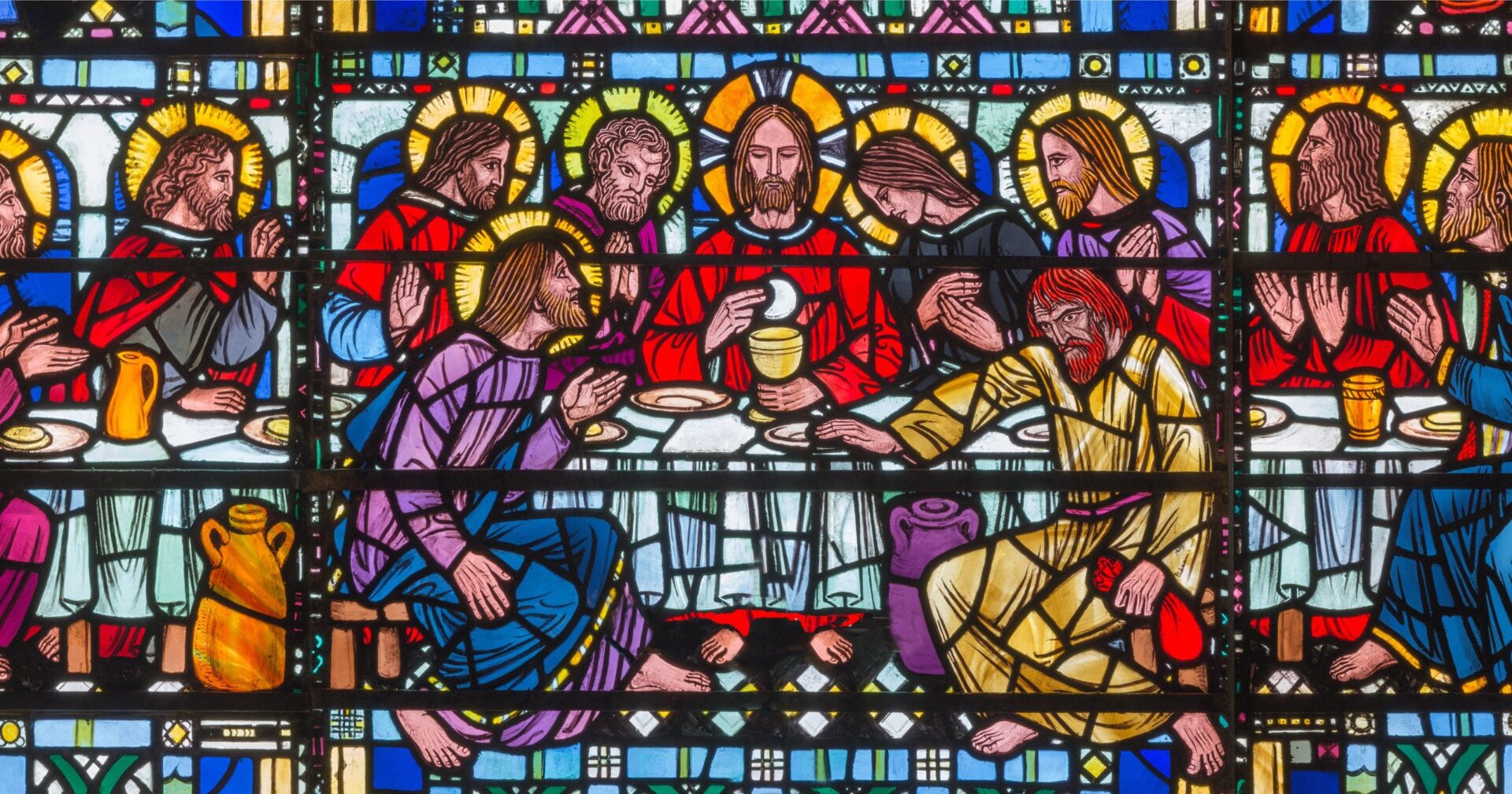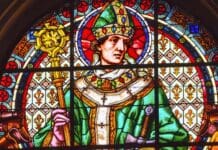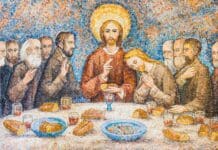Is our celebration of the Eucharist the same today as it was in the earliest days of the Church? A look at some of the earliest sources shows that this ancient tradition has been passed down to today preserved intact.
1 Corinthians
Written around 55 A.D., the Apostle Paul gives the earliest account of how the Eucharist is celebrated after the death of Christ.
“For I received from the Lord what I also handed on to you, that the Lord Jesus, on the night he was handed over, took bread, and, after he had given thanks, broke it and said, ‘This is my body that is for you. Do this in remembrance of me.”’ In the same way also the cup, after supper, saying, ‘This cup is the new covenant in my blood. Do this, as often as you drink it, in remembrance of me.’ For as often as you eat this bread and drink the cup, you proclaim the death of the Lord until he comes.” – 1 Corinthians 11:23-26
The Didache
The Didache is typically dated to the end of the first century, and describes Christianity less than a 100 years after Christ’s death. In it’s 14th chapter, Christian Assembly on the Lord’s Day, the Didache describes not only the manner in which the Eucharistic Celebration is performed, but also its frequency.
“But every Lord’s day gather yourselves together, and break bread, and give thanksgiving after having confessed your transgressions, that your sacrifice may be pure.”
The Didache gives evidence to a weekly celebration of the Eucharist on Sunday, just as we have today in the Church.
The First of Epistle of Clement
Written around 96 A.D., the First of Epistle of Clement, ranks with the Didache as one of the earliest Christian documents outside the New Testament. While it doesn’t explicitly mention the Greek word eucharistia, it does make mention of a giving of thanks in Greek, efcharisto, most likely referring to the Eucharist.
“Let every one of you, brethren, give thanks to God in his own order, living in all good conscience, with becoming gravity, and not going beyond the rule of the ministry prescribed to him.”
A further reference to the Eucharist comes in 1 Clement’s reference to the ministry of presbyter-bishops, describing the Eucharist as an offering of the gifts.
“Our sin will not be a light one if we expel those who worthily and blamelessly have offered the gifts proper to the episcopacy.”
Saint Ignatius of Antioch
Around 108 A.D., Saint Ignatius writes of the Eucharistic Celebration in his Letter to the Philadelphians. Both his letter and the Epistle of Clement give concern as to maintaining the order in which the Eucharist is celebrated.
“Therefore give heed to keep one Eucharist. For there is one flesh of our Lord Jesus Christ, and one cup unto union with His blood. There is one altar, as there is one bishop, together with the presbytery and deacons, my fellow-servants; that whatsoever you do, you may do according unto God.”
Saint Justin Martyr
In the middle of the second century sometime around 155-157A.D., Saint Justin Martyr writes in his First Apology a more clear enunciation of how the Lord’s Supper is celebrated every Sunday in the chapter titled “Weekly worship of the Christians” – strikingly the same as how it is celebrated today.
“And on the day called Sunday, all who live in cities or in the country gather together to one place, and the memoirs of the apostles or the writings of the prophets are read, as long as time permits; then, when the reader has ceased, the president verbally instructs, and exhorts to the imitation of these good things. Then we all rise together and pray, and, as we before said, when our prayer is ended, bread and wine and water are brought, and the president in like manner offers prayers and thanksgivings, according to his ability, and the people assent, saying Amen; and there is a distribution to each, and a participation of that over which thanks have been given, and to those who are absent a portion is sent by the deacons.” – First Apology Chapter 67
Two chapters prior, Justin Martyr elaborates further on the Sacrament of the Eucharist:
“There is then brought to the president of the brethren bread and a cup of wine mixed with water; and he taking them, gives praise and glory to the Father of the universe, through the name of the Son and of the Holy Ghost, and offers thanks at considerable length for our being counted worthy to receive these things at His hands. And when he has concluded the prayers and thanksgivings, all the people present express their assent by saying Amen. This word Amen answers in the Hebrew language to γένοιτο [so be it]. And when the president has given thanks, and all the people have expressed their assent, those who are called by us deacons give to each of those present to partake of the bread and wine mixed with water over which the thanksgiving was pronounced, and to those who are absent they carry away a portion.”
Today
Today, the Church only requires the Faithful to receive the Eucharist once a year, but encourages reception weekly on the Lord’s Day, a tradition we handed down from the absolute earliest days of the Church in the ancient writings of the Church Fathers.
“The Church obliges the faithful to … receive the Eucharist at least once a year … But the Church strongly encourages the faithful to receive the holy Eucharist on Sundays” – CCC 1389
Editorial credit: Renata Sedmakova / Shutterstock.com


















Another important quote is the following description of the very first days of the Church: “Every day they devoted themselves to meeting together in the temple area and to breaking bread in their homes” (Acts 2:46).
I got this web site from my pal who shared with me regarding this website and now this time I am visiting this web page and reading
very informative articles at this time.
It looks like they invoke the Holy Ghost when consecrating the bread and wine into the Body and Blood of Our Lord.